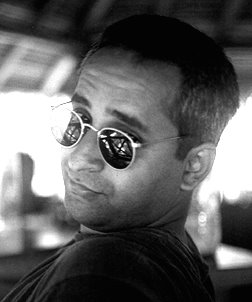Truth, Or Some Such Thing, Will Out.
To recap what I’ve said before at various points, with information ubiquity, arbitraging on facts and exploiting your consumers’ partial knowledge will pass into history. In general information about everything will be more and more accessible and the few remaining gaps will be plugged by public knowledge.
For example, I made a mistake yesterday by calling Tata Sky the first DTH in India, which Raj was quick to point out (Thanks Raj!) It is, in fact the third. Dish from Zee and the state owned Doordarshan or "DD" have both gotten there earlier. Interestingly, DD’s reason for adopting DTH was to enable the last 10% of the population which couldn’t access terrestrial television.
On the much larger canvas of public life, we’ve had stories about citizen journalism nabbing errant politicians, and magazines finding out their rogue contributors. Nick Anthis, a recent graduate of Texas A&M caught out George Deutsch, the Bush appointee to NASA who claimed he had done a PhD from that insitution, and Wired Recently fired a contributing writer, Philip Chien for fabricating quotes or mis-assigning quotes. Interestingly Philip seems to have taken the trouble to create a Hotmail account for the contributor of thr quotes, but the IP address used by this hotmail account has been traced back to his own machine.
At the same time, technology is being put to use for more devious purposes. One of which is the tapping of the Royal phones – for which News Of The World is facing further Censure, following its earlier penalties this year itself
This comes at a time when increasingly a generation is opting for more information rich environments – over traditional, unidirectional broadcast communication.
Like it or hate it therefore technology is here to stay. It’s a part of our lives that we can no longer choose. But technology itself is neither good or evil. It can be used for either, though.
The other and more immediate danger is that in the deluge of information, it can become hard to ascertain facts. Wikipedia is an excellent example. It’s a great starting point for any research but by definition it can be wrong at a point in time. Sometimes this can be guarded against, as in the case of Colbert but mostly, the boundaries of truth and facts are a bit fuzzy in a Schrodingers Cat sort of way.
So while we can say with a certain degree of hope that ultimately in this converged, online and plugged-in world, truth will always prevail, the truth can sometimes have a tortuous journey to the surface of public awareness.
For example, I made a mistake yesterday by calling Tata Sky the first DTH in India, which Raj was quick to point out (Thanks Raj!) It is, in fact the third. Dish from Zee and the state owned Doordarshan or "DD" have both gotten there earlier. Interestingly, DD’s reason for adopting DTH was to enable the last 10% of the population which couldn’t access terrestrial television.
On the much larger canvas of public life, we’ve had stories about citizen journalism nabbing errant politicians, and magazines finding out their rogue contributors. Nick Anthis, a recent graduate of Texas A&M caught out George Deutsch, the Bush appointee to NASA who claimed he had done a PhD from that insitution, and Wired Recently fired a contributing writer, Philip Chien for fabricating quotes or mis-assigning quotes. Interestingly Philip seems to have taken the trouble to create a Hotmail account for the contributor of thr quotes, but the IP address used by this hotmail account has been traced back to his own machine.
At the same time, technology is being put to use for more devious purposes. One of which is the tapping of the Royal phones – for which News Of The World is facing further Censure, following its earlier penalties this year itself
This comes at a time when increasingly a generation is opting for more information rich environments – over traditional, unidirectional broadcast communication.
Like it or hate it therefore technology is here to stay. It’s a part of our lives that we can no longer choose. But technology itself is neither good or evil. It can be used for either, though.
The other and more immediate danger is that in the deluge of information, it can become hard to ascertain facts. Wikipedia is an excellent example. It’s a great starting point for any research but by definition it can be wrong at a point in time. Sometimes this can be guarded against, as in the case of Colbert but mostly, the boundaries of truth and facts are a bit fuzzy in a Schrodingers Cat sort of way.
So while we can say with a certain degree of hope that ultimately in this converged, online and plugged-in world, truth will always prevail, the truth can sometimes have a tortuous journey to the surface of public awareness.


0 Comments:
Post a Comment
<< Home